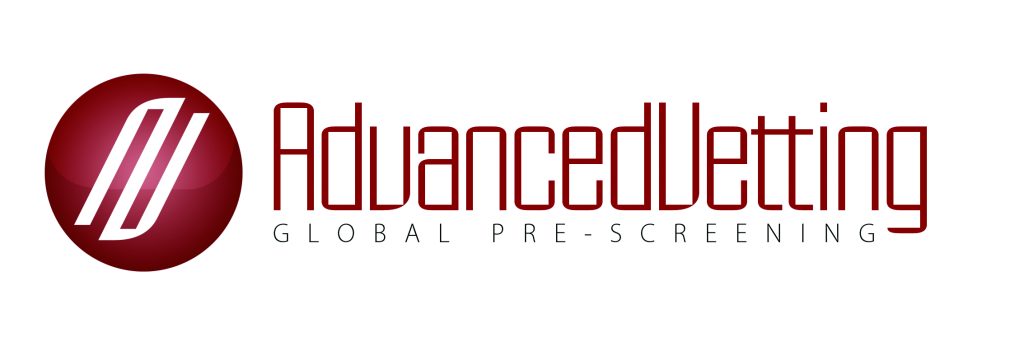Remote work has transformed how businesses operate and hire. While the flexibility and global talent pool that remote work offers are undeniable, it also brings specific challenges, particularly in vetting. Ensuring that remote workers meet the necessary qualifications, trustworthiness, and reliability requires a strategic approach to hiring and ongoing evaluation. That’s why we discuss effective strategies and best practices for vetting remote workers, ensuring your team stays strong, secure, and successful, no matter where they are based.
Why Should You Vet Remote Workers?
Vetting remote workers is crucial for several reasons.
Hire Qualified Employees
First and foremost, thorough vetting helps identify candidates with the necessary skills, experience, and work ethic to thrive in a remote working environment. This is particularly important given the unique challenges of working from home, such as self-motivation and time management.
Mitigate Risks
Moreover, proper vetting reduces the risks of hiring unsuitable candidates, protecting your organisation from potential security breaches, productivity issues, and reputational damage. This is especially critical when employees work outside the traditional office environment, where direct supervision is limited.
Legal Compliance
Compliance is another key factor. Vetting ensures that remote workers meet legal and regulatory requirements, which is particularly important for roles involving sensitive information or financial responsibilities.
Cultural Fit
Finally, the vetting process helps determine whether a candidate aligns with your company’s values and can integrate well into your remote team, contributing to a positive and productive remote working culture.
What Are the Unique Challenges of Vetting Remote Candidates?
Vetting remote candidates involves several key considerations that require careful attention, such as:
- Limited face-to-face interaction
- Difficulty in assessing non-verbal cues
- Potential time zone differences
- Verifying remote work experience
- Evaluating candidates’ ability to work independently
- Assessing technical skills and home office setup
- Ensuring data security and confidentiality
The Remote Vetting Process: A Step-by-Step Guide
To effectively vet remote workers, it’s crucial to follow a structured process. Here’s a comprehensive guide to help you navigate the remote vetting journey:
1. Define the Job Requirements
Begin by clearly outlining the skills, experience, and qualifications needed for the role. It’s important to specify remote work-specific requirements, such as self-motivation and strong communication skills.
2. Initial Screening
Review CVs and cover letters to shortlist potential candidates. Follow up this stage with preliminary phone or video interviews to assess basic qualifications and communication skills.
3. In-Depth Interviews
Utilise video conferencing tools for more comprehensive interviews. Including team members in the interview process is beneficial to gauge cultural fit and how well the candidate might integrate into the existing remote team.
4. Skills Assessment
Implement online skills tests relevant to the role. For tech positions, consider using coding challenges or platforms like HackerRank or CodeSignal to evaluate technical proficiency.
5. Reference Checks
Contact previous employers to verify work history and performance. Pay special attention to feedback on the candidate’s ability to work independently and manage time effectively in remote settings.
6. Background Verification
Conduct thorough background checks, including criminal record checks and right to work verification. It’s also crucial to verify educational qualifications and professional certifications.
7. Trial Period or Project
Consider assigning a short-term project or trial period to assess the candidate’s performance in a real-world scenario. This can provide valuable insights into their work style, communication skills, and ability to deliver results remotely.
What Tools and Technologies Can Simplify Remote Candidate Assessment?
Utilise these tools to streamline your remote vetting process:
- Video conferencing platforms (e.g., Zoom, Microsoft Teams)
- Applicant Tracking Systems (ATS)
- Skills assessment platforms (e.g., HackerRank, CodeSignal, Coderbyte)
- Background check services
- Digital reference-checking tools
- Personality assessment tools
- Project management software for trial projects
What Legal Considerations Should You Know About in Remote Worker Vetting?
When vetting remote workers, it is essential to comply with UK employment laws and GDPR. You must also ensure equal opportunities for all candidates and avoid any form of discrimination. Transparency in the vetting process is key, and obtaining consent from candidates for background checks is important while safeguarding their personal data.
If you’re hiring internationally, you should also consider the legal requirements in other countries. Adhering to these legal considerations helps maintain a fair, secure, and compliant recruitment process.
Best Practices for Vetting Remote Workers
To ensure a smooth and effective remote hiring process, it’s essential to implement key best practices:
Use a Structured Interview Process
A structured interview ensures that all candidates are assessed consistently. Prepare questions that focus on essential skills, experience, and traits for the role and their ability to work remotely.
Incorporate Job-Specific Assessments
Job-specific assessments or skills tests help verify that candidates possess the expertise needed for the role. For example, technical tests or written assignments can give you a clearer picture of their proficiency.
Leverage Video Technology
Video interviews are crucial for assessing communication skills and cultural fit. Tools like Zoom or Microsoft Teams allow you to conduct face-to-face interactions, even remotely, helping you evaluate candidates more effectively.
Conduct Thorough Background Checks
Background checks are essential to confirm a candidate’s qualifications, work history, and suitability for the role. Include checks on criminal records, employment history, and right to work.
How Can Advanced Vetting Support Your Remote Hiring Needs?
Advanced Vetting offers comprehensive solutions to support your remote hiring process:
- Thorough background checks tailored for remote workers
- International vetting services for global remote hires
- Credential verification and employment history checks
- Customised vetting packages for specific remote roles
- Ongoing screening for long-term remote employees
- Expert guidance on remote vetting best practices
By partnering with Advanced Vetting, you can ensure a comprehensive, compliant remote worker vetting process, mitigate risks, and make informed hiring decisions.
Take the Next Step in Building a Successful Remote Team
Vetting remote workers requires a comprehensive approach that addresses the unique challenges of remote work while ensuring a thorough evaluation of candidates’ skills, experience, and suitability. By implementing best practices, leveraging appropriate tools, and partnering with expert vetting services like Advanced Vetting, UK businesses can build strong, reliable remote teams that drive success in the evolving world of work.
Contact Advanced Vetting Today
For expert assistance in vetting remote workers and conducting thorough background checks, partner with Advanced Vetting. Our comprehensive pre-employment screening services can help you make informed hiring decisions and mitigate risks associated with remote hiring. Contact us today to learn how we can support your remote worker vetting needs.






